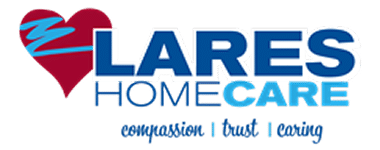You probably know that blood pressure numbers are important. You may even know that current guidelines say that having a blood pressure that is consistently 120/80 or higher is considered elevated. But just where do those numbers come from and what do they mean? Understanding your aging relative’s blood pressure numbers may help you to better care for them and assist in managing high blood pressure.
What the Numbers Mean
The measurement of blood pressure is expressed using two numbers. You’ll hear doctors report blood pressure by saying something like, “Your blood pressure is 120 over 80.” The top number is the systolic blood pressure and the bottom one is diastolic blood pressure.
Systolic blood pressure is a measurement of the amount of pressure blood places against the walls of arteries when the heart muscle is contracting. Diastolic blood pressure measures the amount of pressure between beats, while the heart is resting.
Doctors usually pay more attention to the top number because it is considered a more significant indicator of the risk for cardiovascular disease in older adults. It’s common for systolic pressure to gradually rise over the years as arteries get stiffer and plaque builds up on artery walls. However, either number can be used to diagnose high blood pressure.
What’s Considered Normal…and What Isn’t
The American Heart Association uses five ranges to describe categories of blood pressure. The ranges are:
- Normal: Blood pressure is considered normal when it is below 120/80. Following a heart healthy lifestyle, like eating a balanced diet and exercising, can help to keep blood pressure in the normal range.
- Elevated: When the top number of the blood pressure reading is between 120 and 129 or when the bottom number is between 80 and 89, it is considered elevated. Taking steps to reduce blood pressure can prevent it from getting higher and leading to a diagnosis of hypertension.
- Hypertension Stage 1: When the upper number is between 130 and 139 or the bottom number is between 80 and 89, the patient has stage 1 hypertension. Usually, doctors don’t prescribe medicine in this stage unless there are other risk factors for cardiovascular disease. Instead, they typically suggest making lifestyle changes.
- Hypertension Stage 2: This stage occurs when blood pressure consistently measures at 140/90 or higher. Doctors usually prescribe a combination of medications to bring the numbers down. They may also suggest lifestyle changes.
- Hypertensive Crisis: A hypertensive crisis occurs when blood pressure is suddenly above 180/120. If that happens, wait five minutes and check the senior’s blood pressure again. If it is still high, seek medical attention. If the abnormally high reading is accompanied by chest pain, shortness of breath, or other signs of heart attack, call 911.
Elder care can assist older adults to better manage their blood pressure. Elder care providers can remind them when it is time to take medications. An elder care provider can also cook healthy meals that are low in sodium. An elder care provider can also assist the senior to increase physical activity, which can also help to reduce blood pressure levels.
If you or an aging loved one are considering Elder Care in Freehold Township, NJ, please contact the caring staff at Lares Home Care 888-492-3538 or 732-566-1112.
Sources
https://www.healthline.com/health/high-blood-pressure-hypertension/blood-pressure-reading-explained
https://www.heart.org/en/health-topics/high-blood-pressure/understanding-blood-pressure-readings
- 24-Hour Home Care Makes Recovering At Home Easier For Seniors - June 4, 2025
- Why Seniors Need Companion Care - May 22, 2025
- Home Care Assistance Can Help Your Senior Parent Recover After A Heart Attack - May 7, 2025




